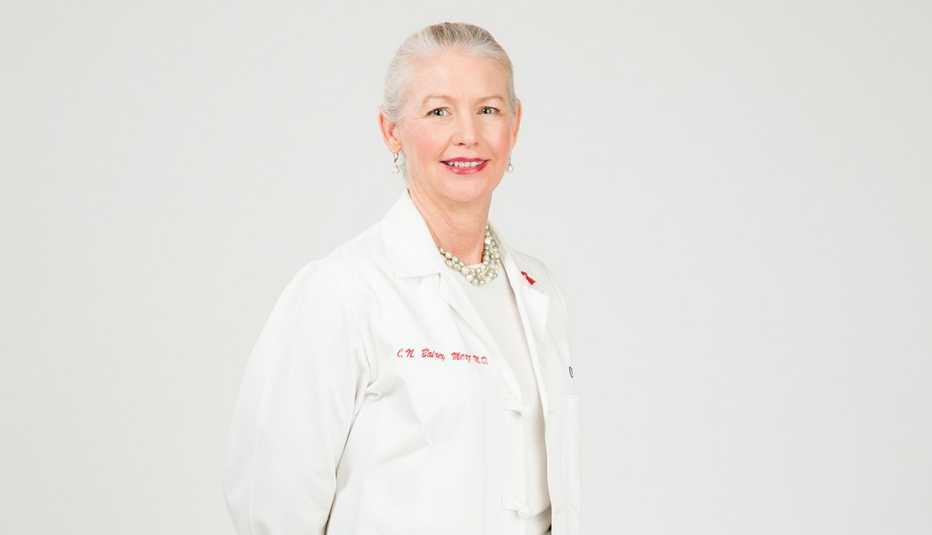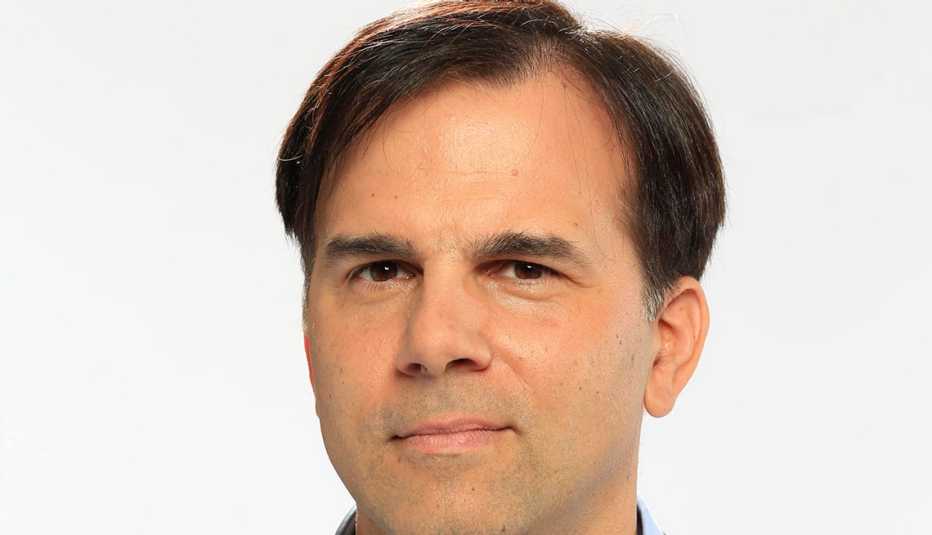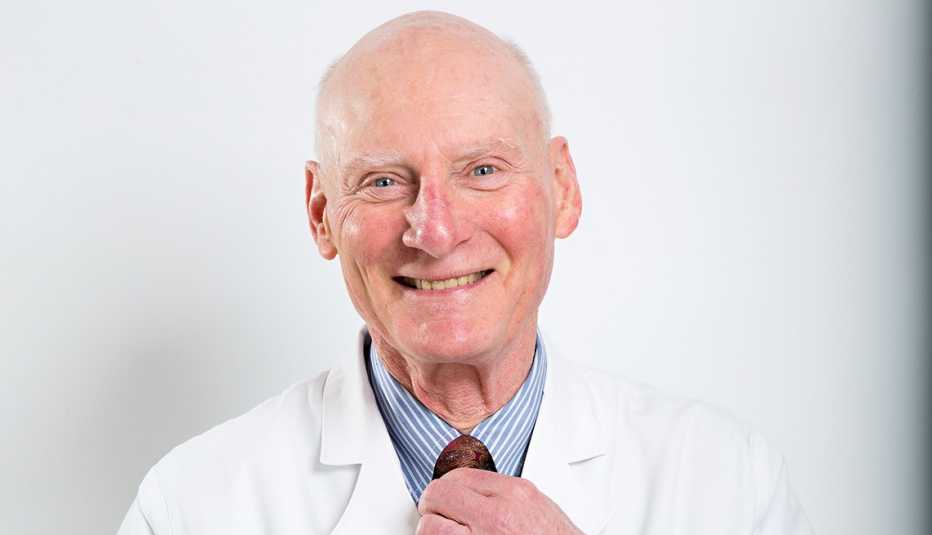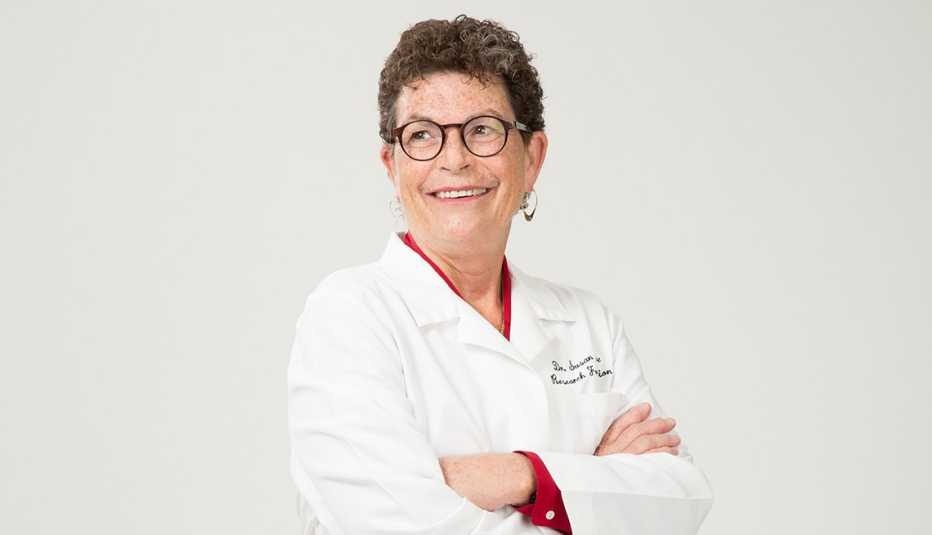Look to Silicon Valley
What I think is most vital is continuing to support and promote the U.S. as a cauldron of innovation. We need to look to places like Silicon Valley and try to imitate what they've done for information technology that has allowed us to clearly outpace the world. We need to continue to draw in extremely talented people from all over the world who want to work here, so that our talent pool can be the world, and not just the U.S. If we are going to drastically lower the cost and the morbidity of surgical procedures and improve outcomes — which I think we can do in my lifetime — that's going to take innovation. I want to create a new field of intestinal surgery working inside the intestine that is centered on this concept. Instead of cutting out pieces of intestine for Crohn's disease, we're going to be able to put in a bioabsorbable stent that has medicinal therapies. That's only going to come about if a whole group of like-minded people, including surgeons, pharmacologists, imaging specialists and bioengineers, work together. The key is having interested parties and people to champion new ideas."
Implement a team approach to care
Elmer Huerta is director of the Cancer Preventorium at MedStar Washington Hospital Center in Washington, D.C.
Eli Meir Kaplan
What we really need is more integration and team care, particularly for serious and chronic diseases. We have a health care system that is focused on episodic care, rather than how to deal with chronic care. As the baby boomers are aging, that's going to be a huge problem. Two years ago I was diagnosed with AML [acute myeloid leukemia], so now I've been a doctor and a patient. I'm really happy I'm still here, but now I have all kinds of issues I have to deal with — chemo brain, neuropathy, immunosuppression — and the cancer doctors are really not as interested in the collateral damage as the fact that they cured me. As a doctor, I was as guilty as anyone of ignoring the collateral damage until I had cancer and realized how much it impacts your life. Patients need more insight into how they can maximize the quality of their lives. At Dr. Susan Love Research Foundation, we have been asking women with breast cancer to tell us about their collateral damage from treatment and have been overwhelmed by the response. An integrated, multidisciplinary team approach to the whole person before, during and after receiving treatment — including surgeons, oncologists, radiation therapists, psychologists, physical therapists, pain specialists and those with expertise in palliative care — would facilitate the delivery of care to the whole patient and not just the disease."
Empower patients
Jeffrey Milsom is chief of colon and rectal surgery and executive director of the Center for Advanced Digestive Care at Weill Cornell Medical College and New York-Presbyterian Hospital.
Nathaniel Welch
We talk about patient-centered care, but we really have doctor-centered care. What I want are tools that patients can use to empower themselves. Right now I'm the doctor. I have all the knowledge. I'm in control. I want to flip that dynamic. In the same way I am required by law to ask about allergies and medications, and talk about a past medical history, I want doctors to take the time to sit down, slow down and ask a patient: What's a good day for them? What's important for them? What are their values? What are their religious beliefs, their ritual beliefs? I want to know what their hopes and fears are for medical care, and where they want to spend the end of their life. I want to be required to have to ask that of all patients, at least to give them the opportunity. And sure, there may be some patients who are not ready to have that conversation, but I want them to know that I am open to having that conversation. It's the ultimate wellness pitch, I tell people: We are all going to die someday, and part of living well means addressing this life's final chapter. That's not about end of life. It's about a good life, for as long as you can, as best as you can."
Create a unified system of care
My grand vision would be to have a system where all levels of care are linked. Transitions within health care are very problematic. That's where mistakes happen and errors creep in, because things aren't transmitted accurately. It's the most vulnerable point — especially for older people. So if someone were moving from an outpatient setting to the emergency room or from the hospital to assisted living, there would be a seamless ability to do that across financial boundaries. If we had one system where all those costs and expenses were seen as part of the whole, and any part of the system that saved money would save money for everybody, that would remove those barriers. Then complement that with a shared electronic record, so that when we have to move patients from one place to another, their information follows them seamlessly. The people admitting that patient back to the nursing home or back to the doctor have the information right there that says: This is what we know, and this is what needs to be done."
Put health data to work
Michael Kazim is a clinical professor of ophthalmology at Columbia University Medical Center and a specialist in oculoplastic and orbital surgery.
Spencer Heyfron
The real change that needs to happen is one that puts patients in control of their data. Hospitals are monetizing your data all the time. Hospitals hold data and allow people to look or copy, but it is not always easy to bring together all the information. You should have control over your data and have the ability to share it securely with anyone you want. This will shift the balance of power toward the patient, allowing people to do comparative shopping for their health care, and reducing costs, because today it’s easier to repeat tests than get the data from another doctor or hospital. Sometimes bad things happen because critical information isn’t available; sometimes it’s because people are getting care at different places and the information never comes together in one place. There are personal health records out there, but they require the patient to do a lot of work. We need to get to a system where patients have access to their own data that they can use seamlessly. Ideally, it would be like your bank account. You can easily access all of your financial information online. Why not your health records?
Support innovation
Since World War II, the U.S. has been the leader in health care innovation. That has not happened by accident. The U.S. has provided an environment that was able to attract the best and brightest young minds to medicine by providing financial and cultural support to innovate and invest in basic and clinical research. This investment in U.S. medicine has been able to profoundly improve treatment outcomes. If you are a bright young medical student, resident or fellow who wants to learn the newest surgical techniques, test a brain scanner that distinguishes cancer from a harmless mass without surgery, or develop a new drug to treat blinding macular degneration, you have done this in the U.S., but this does not guarantee that it will be true in the future. Forces are at work today to create a future health care system that will foster standardized treatment protocols to reduce cost and improve outcomes for the most common diseases. While this is important, an equal focus must be maintained on the recruitment of the best and brightest young minds to be the next generation of physicians, surgeons and medical scientists who will bring their vision of the future to medicine. We need to support the innovators, both financially and by giving them the opportunity to be inquisitive and fearless in their efforts to change established treatment protocols for the better, back individualized care plans where appropriate and see the benefits of innovations translate into healthier patients who will enjoy a better quality of life.




















































































